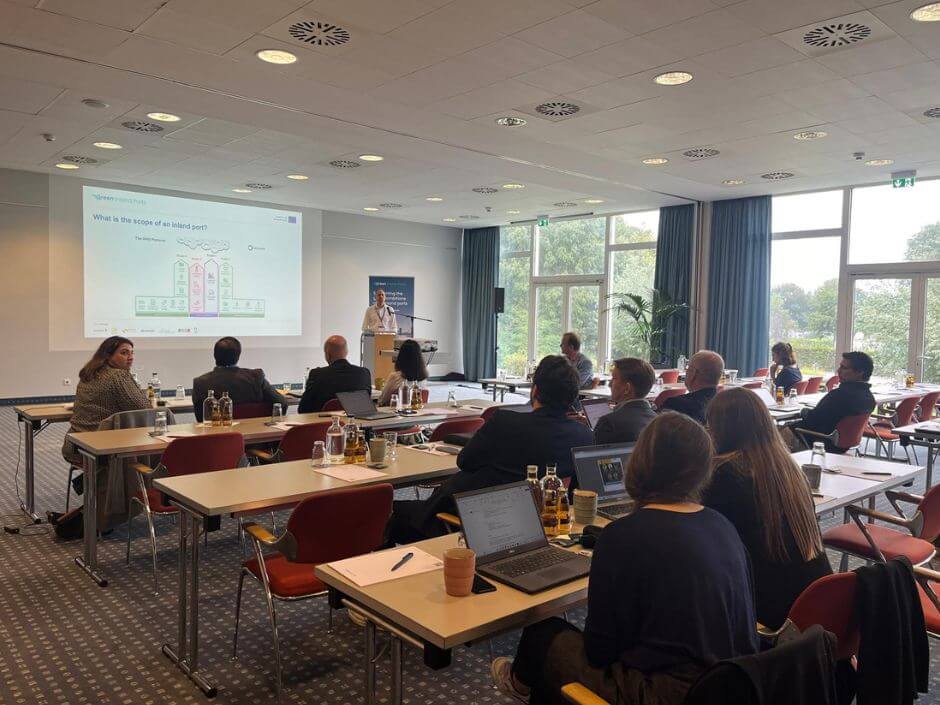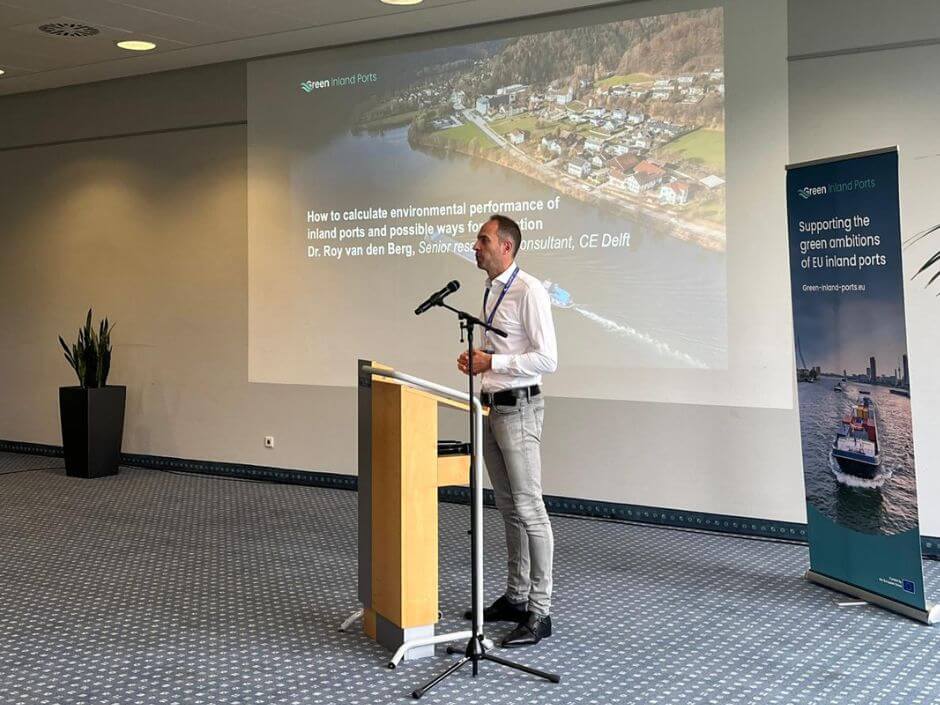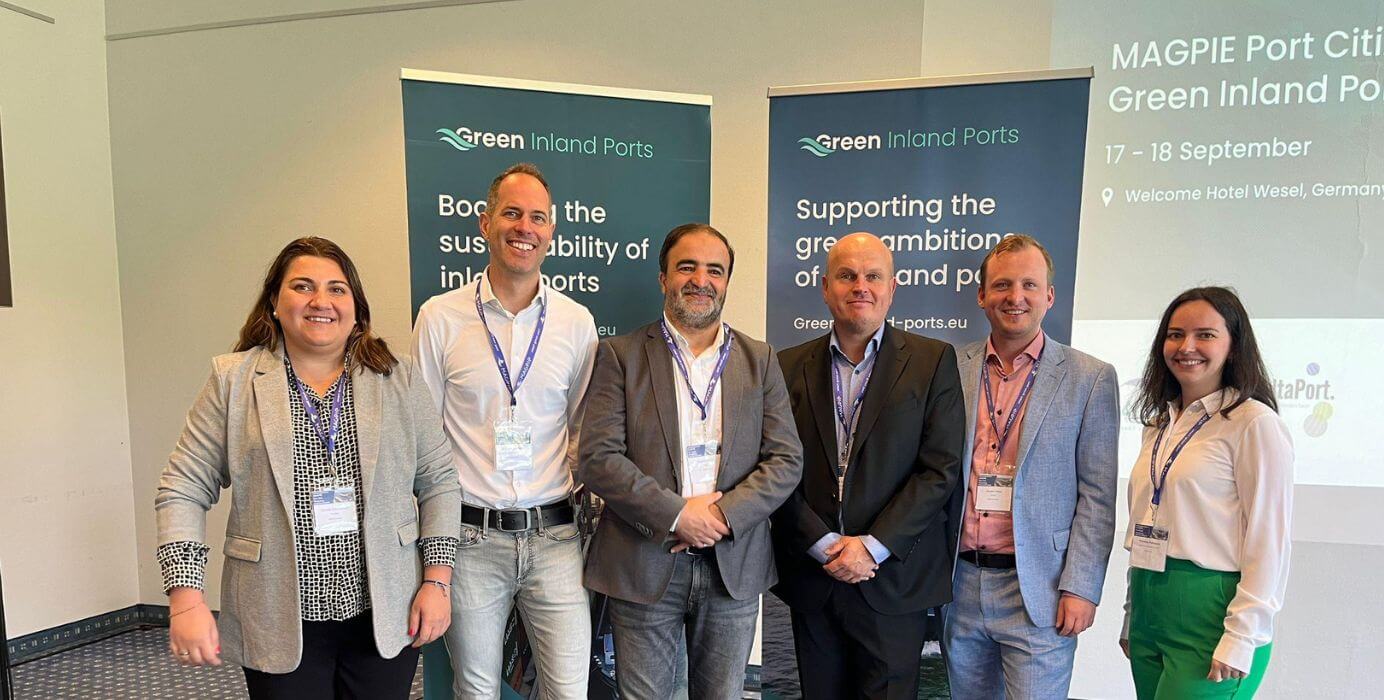The MAGPIE Port-Citizen workshop took place on 17 September and gathered key stakeholders from the inland port community. During the workshop, the Green Inland Ports study team presented key findings and results of the study, focusing specifically on the environmental impacts of inland ports and practical tools which can support ports to reduce emissions and improve efficiency.
Summary of the event
Jasper Tanis (Ecorys) kicked off the event by introducing the overarching goals of the Green Inland Ports (GRIP) initiative. He outlined how the project aims to promote sustainable practices across European inland ports, with a focus on reducing environmental impacts, having multimodal transport solutions and developing tools for greener port operations.

We were glad to welcome the host of the event, Patrizia Pollmann from DeltaPort who greeted attendees. She emphasised DeltaPort’s role as a frontrunner in adopting green initiatives and the importance of collaboration to accelerate sustainability efforts in port operations.
Roy van den Berg (CE Delft) presented methods for calculating the environmental footprint of inland ports, using a case-based approach to assess emissions, energy consumption, and other environmental metrics. His insights focused on practical tools which ports can adopt to track and reduce their environmental impact, supported by real-life case studies. Roy’s presentation sparked many questions, with participants like the Port of Rotterdam seeking further clarification. He emphasised that the GRIP tool is unique because it considers the port as a whole, which sets the tools apart from existing tools.
Ioanna Kourounioti (Panteia) introduced the development of Environmental and Social Management Systems (ESMS) tailored to inland ports. These systems enable ports to monitor, manage, and reduce their environmental impacts, ensuring compliance with regulations while maintaining operational efficiency. She also discussed how ports can set SMART (Specific, Measurable, Achievable, Realistic, and Timely) goals to achieve sustainable outcomes.
Khalid Tachi (EICB) focused on the Digitalisation Masterplan for inland ports, outlining how digital tools can support green port operations. He covered topics such as regulatory frameworks, good practices in digital collaboration and how ports can overcome challenges like data security and system interoperability to enhance operational efficiency.
Henrik Armbrecht (Planco) returned to discuss urban and short-range inland waterway transport (IWT), showcasing successful case studies in cities like Paris and Amsterdam. He outlined key success factors, such as stakeholder collaboration and the integration of IWT into urban transport planning, emphasising the potential for reducing road transport emissions through IWT.
We would like to thank MAGPIE for their excellent cooperation with Green Inland Ports! We are very glad to have been part of their event and look forward to future collaboration. Thank you to all the speakers, consortium partners, organisers and participants!

